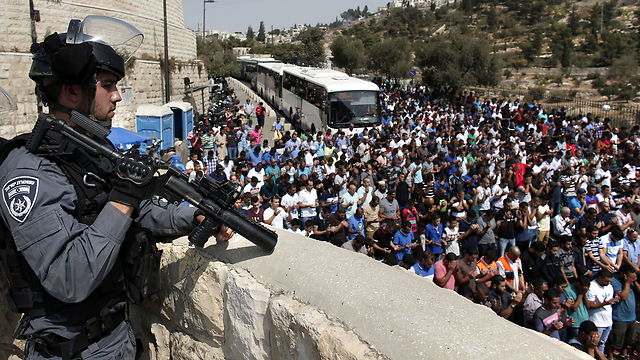
In 1929 Jews were wrongly accused of building an enclosure by the Western Wall. In the subsequent protest riots, which extended to Hebron, 133 Jews and 110 Muslims were killed.
During the Jordanian occupation of East Jerusalem and the West Bank (1948-67) Israeli Jews were prevented from visiting the Western Wall.
Immediately after the Israeli entry into the Old City of Jerusalem during the Six Day War in 1967, Palestinians opened fire, from the 770-year old Mughrabi ("Moroccan") Quarter, on Jewish worshippers at the Western Wall. Moshe Dayan, then Israeli Minister of Defence, immediately ordered the destruction of surrounding Palestinian buildings, to form an open piazza for worshippers and visitors.
In 1969 an Australian Christian, Denis Michael Rohan, set fire to the Al-Aqsa Mosque. He was arrested, but was found insane.
In 1984, a right-wing Jewish extremist group was narrowly prevented from blowing up the Al-Aqsa Mosque.
In 1990 a Jewish group called "The Temple Mount Faithful" attempted to plant a cornerstone for the Third Temple, sparking riots in which between 19 and 23 Palestinians were killed with live ammunition and 150 more wounded.
In 1996 the Israelis opened tunnels beneath the Temple Mount, allegedly for archaeological purposes. This triggered riots in which about 80 Palestinians and 14 Israeli soldiers died.
In 2000 Ariel Sharon, then leader of the Likud opposition in the Knesset, visited the Temple Mount with hundreds of security personnel, provoking Palestinian protests which helped to spark the Second Intifada.
In 2017 three Israeli "Arabs", using weapons concealed inside the Temple Mount, fired on Israeli (Druze) Border Police. The Israeli authorities temporarily installed metal detectors at the entrance to the Temple Mount, which provoked widespread Muslim protests, not confined to Palestine.